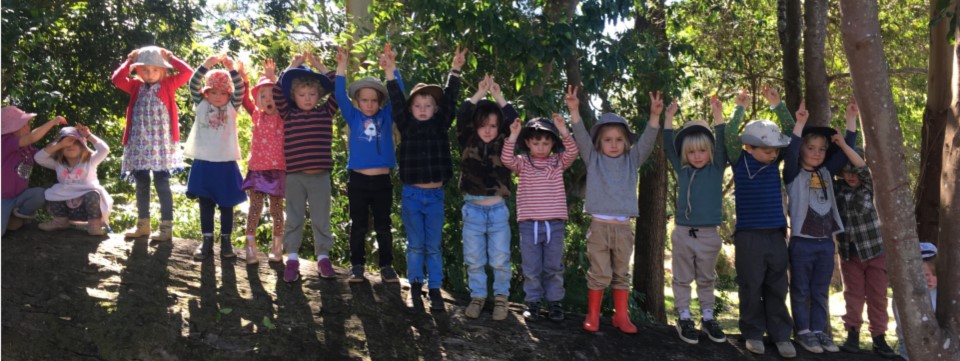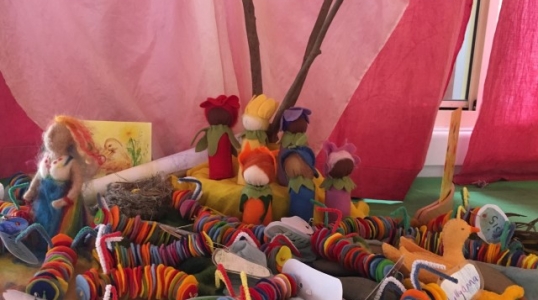In a Steiner school the Kindergarten years are held to be unique and of great value. Education, like gardening, is a life process that requires time and care – like the plant, the child goes through various phases of maturing.
Within a Steiner school there is recognition of three phases of child development: 0 – 7 years, 7 – 14 years and 14 – 21 years. The Kindergarten curriculum works with the first phase, 0 – 7 years, with the understanding that what is done during these early years is not unlike the planting of a seed, with the flower only coming into full bloom many years later.
Young children are fundamentally trusting and open to the world about them. Like sense organs they absorb and respond to all impressions, unable to protect themselves from those that may be harmful or destructive. Impressions may thus penetrate the child so deeply that they may affect their development and future health and stability.
From the developmental picture, as given by Steiner, we are aware that children in this phase learn by doing; that there is a “participatory knowing”. This participatory or “tacit” knowing needs to be grounded in lived experience in order for abstract concept-building to emerge in later years. Through physical, sensory, and motor activity, the young child comes to know the world. Attempts at this stage to teach the child analytical, conceptual thinking are premature, and may inhibit the full development of this tacit knowing that is seen to be so necessary for truly powerful, creative, and self-confident thinking in later life.
If we proceed from the understanding that the young child learns through imitation, and through absorbing all actions and qualities around them, then we cannot but wish to surround the child with all that is harmonious, beautiful, truthful and endowed with goodness:
- Harmonious musical sounds and beautiful, flowing colours,
- Toys made of materials of natural beauty such as wood, sheep’s wool, shells, fine cloths, silk and hand made dolls,
- Adults who are mindful that each action be worthy of the child’s imitation,
- An atmosphere of calm and order, though there may be moments of intense activity.
A Steiner approach acknowledges that children need to play and be active until their seventh year and that “education” before that age needs to be offered imaginatively and non-intellectually, through play, physical activity and through the opportunity for spontaneous imitation.




